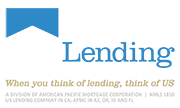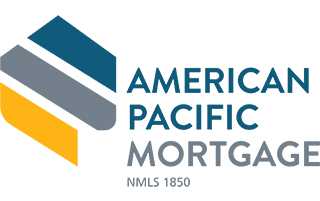Feeling overwhelmed by High-Interest Debt?
High-interest credit card debt can be a significant financial burden. Paying off this debt with today’s soaring interest rates can require substantial sacrifices. However, if you’re a homeowner, there’s an alternative that doesn’t involve extreme austerity measures.
You could tighten your purse strings, living on a strict budget while sacrificing many comforts. Alternatively, you could harness the power of your home equity to achieve a more beneficial outcome.

Utilizing a Home Equity Loan to Eliminate Credit Card Debt
Your home equity can become a lifeline when you find yourself trapped under the weight of high-interest credit card debt.
Through options like a cash-out refinance, a home equity line of credit (HELOC), or a home equity loan (HELOAN), you can pay off your credit card debt or consolidate multiple high-interest accounts into a single, manageable payment. This payment is usually more affordable than the combined monthly payments you’ve been making to your various creditors.
What are the 3 types of loans that use home equity to pay down debt?
- A cash-out refinance
- The HELOC loan.
- The home equity loan (HELOAN), or second mortgage.
How It Works:
A cash-out refinance involves replacing your existing mortgage with a new, larger one. The difference between the new loan balance and your old one is disbursed to you in cash, which can be used to pay off high-interest credit card debt.
To begin the process, a mortgage lender will evaluate your refinance application and arrange for an appraisal to determine your home’s current value. The cash disbursement will first cover your existing mortgage balance, with the remainder available for tackling your credit card debt.
The second option is a HELOC, which provides a line of credit based on your home’s equity. Typically, you have a 10-year draw period to withdraw funds, followed by a 20-year repayment period for the principal and interest on the amount withdrawn. During the draw period, you’re required to pay only the interest on the withdrawn funds.
Another choice is a home equity loan (HELOAN), often referred to as a second mortgage. This is a fixed-rate mortgage typically lasting 15 years. Unlike the revolving credit line offered by a HELOC, a HELOAN provides a fixed home loan amount. You’ll receive a check at closing for a specific sum, with fixed interest rates and payments, which can be used to consolidate your debt.
Whether you choose a cash-out refinance, HELOC, or HELOAN to pay off or consolidate high-interest credit card debt, it’s essential to understand that you’ll have a new mortgage loan or, in the case of a second mortgage, a new interest rate.
Benefits of Using Home Equity to Tackle High-Interest Debt:
Leveraging your home equity can be the debt reduction solution you’ve been searching for. Consider these advantages:
- Faster Debt Payoff: By consolidating high-interest credit card debt into your mortgage, you can benefit from lower interest rates. This reduces the overall cost of borrowing and allows you to pay off your debt more rapidly, saving you thousands of dollars in interest payments over time.
- Improved Credit Score: As you pay off your credit card accounts and reduce your debt load, your credit score is almost guaranteed to improve. A higher credit score can open up better terms and opportunities for future loans and credit lines.
- Savings and Financial Security: A HELOC, home equity loan, or cash-out refinance frees up extra funds that can accelerate your debt consolidation efforts. With your old monthly payments gone, you can redirect that money into savings, build your nest egg, save for retirement, emergencies, or significant purchases, providing financial security.
- Streamlined Payments: Managing multiple monthly payments with varying interest rates and due dates can be overwhelming. A cash-out refinance or home equity loan simplifies this process. You can use the lump sum to pay off your debt or consolidate all your debts into one payment with a more favorable fixed interest rate, making it easier to stay on top of your finances.
- Elimination of High-Interest Rates: While paying off your debt won’t significantly lower the interest rate on your credit card, it will eliminate the compounding interest you’ve been paying on your principal balance. This can translate into substantial savings, considering the high interest rates typically associated with most credit cards.
It’s true that a HELOC or cash-out refinance will introduce new mortgage terms, including a new fixed rate. However, today’s mortgage rates are significantly lower than the high-interest rates that most credit cards carry. If your debt is substantial and you’ve built up home equity, swapping your current mortgage rate for a new one can be a wise decision.
Considerations with a Debt Consolidation Refinance
Refinancing your mortgage to tap into your home equity offers numerous benefits, but it’s not without its considerations. Here are some factors to keep in mind:
- Higher Monthly Payments: Your monthly mortgage payments will increase since you’re taking on new terms and a higher mortgage balance. However, if you’re consolidating your debt into a lower interest rate with a single payment, the overall savings can outweigh the cost.
- Increased Mortgage Interest: A debt consolidation refinance can save you a significant amount on high-interest credit card debt, but you may end up paying more interest on your mortgage over the life of the new loan.
- Loss of Deductibility: Unlike mortgage interest, interest tied to other outstanding debts, such as high-interest credit card debt, is not tax-deductible.
- Long-Term Commitment: A cash-out refinance or HELOC commits you to a new loan and repayment structure for the next 20 to 30 years.
- Closing Costs: Accessing home equity comes with closing costs, typically ranging from 2% to 6% of the loan amount.
Considering Home Equity for Debt Relief?
Using home equity to pay off high-interest credit card debt can be an excellent strategy for homeowners who can manage their new monthly payments and plan to stay in their homes for an extended period. Not only can it accelerate your credit card debt payoff, but it can also elevate your credit score and provide significant savings on credit card interest that would otherwise hinder your financial goals.
It’s important to acknowledge that these options may lead to higher monthly mortgage payments and additional closing costs. Nevertheless, the long-term benefits may make one of these solutions viable if high-interest credit card debt is overwhelming you and jeopardizing your financial well-being.
If this situation resonates with you, we’re here to assist!
Reach out to one of our trusted US Lending Company Loan Advisors today to discuss your unique financial circumstances and explore your debt repayment options.
The views, articles, postings, and other information listed on this website are personal and do not necessarily represent the opinion or the position of American Pacific Mortgage Corporation or US Lending Company.
* For loan examples and more information visit our disclosure page at https://www.uslendingcompany.com/disclosures/





